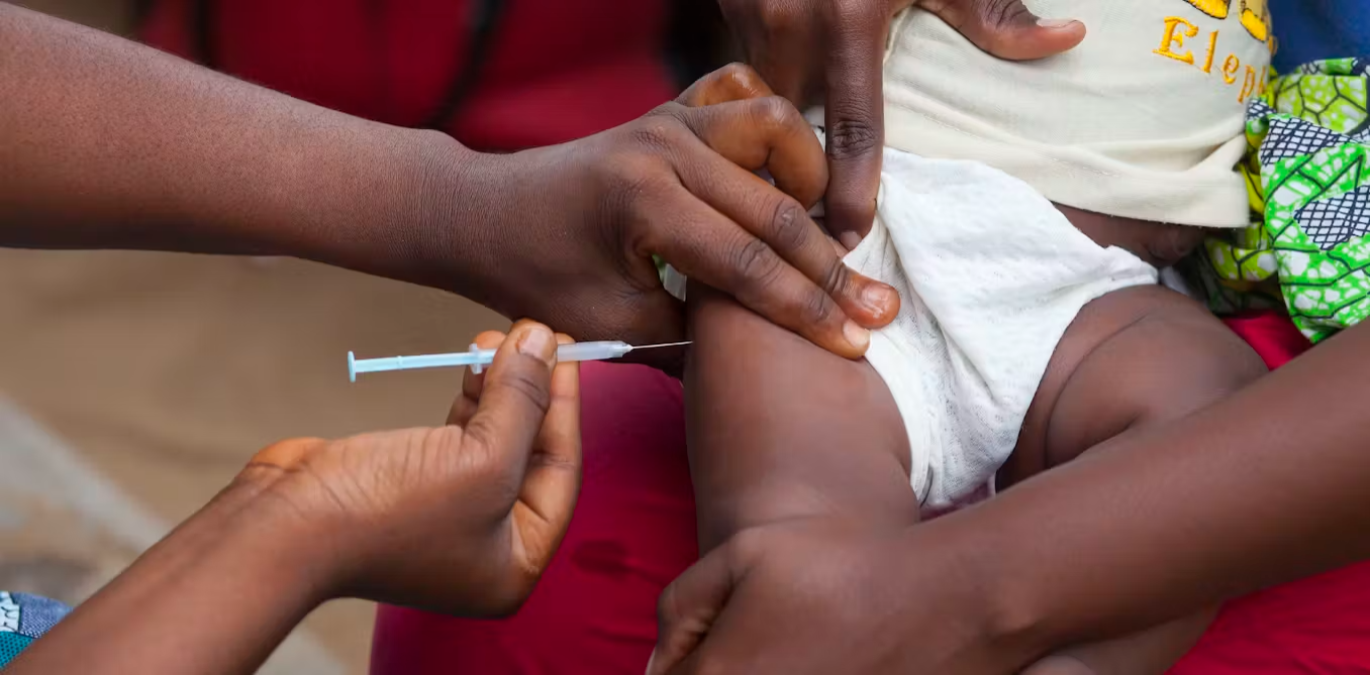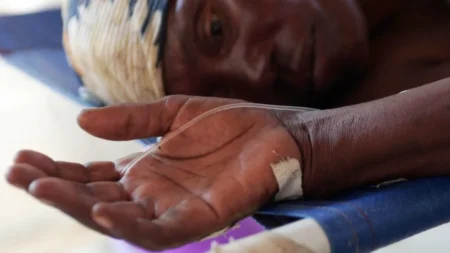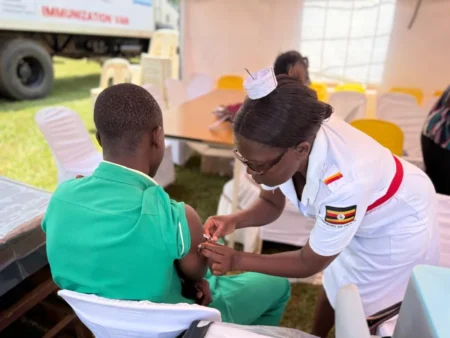KAMPALA, Uganda — All newly born babies across Uganda are soon to receive an additional vital vaccine, as the Ministry of Health prepares for a nationwide rollout of the Hepatitis B jab at all health facilities offering immunization services.
Speaking at a press conference on Monday, Dr. Ronny Bahatungire, the Commissioner for Clinical Services in the Ministry, revealed that the national rollout, slated for August, will target both newborns delivered within hospitals and those born outside health facilities who are brought in for vaccination within 24 hours of birth.
The introduction of this new vaccine means that newborn babies in Uganda will now receive three crucial vaccinations, adding to the two existing jabs against polio and tuberculosis. Dr. Bahatungire explained that this new development is specifically intended to significantly reduce the high rates of mother-to-child transmission of Hepatitis B.
According to estimates from the 2019 Uganda Population-based HIV Impact Assessment (UPHIA), the most recent survey to collect data on Hepatitis B, the disease is prevalent among 4.1 percent of the population.
A concerning aspect of these statistics is that the majority of those affected are women, while testing rates for the disease remain low, falling below 60 percent. Experts warn that many more individuals could be living with the disease, which has the potential to progress into liver cancer.
Early immunization, however, offers a critical layer of protection for babies, preventing them from acquiring the disease from their mothers at birth or even during breastfeeding.
Dr. Miriam Ajambo, a pediatrician, noted that approximately ninety percent of children born after 2002 have already been vaccinated against Hepatitis B.
This is because the government previously integrated the Hepatitis B vaccine into the routine immunization schedule as part of the pentavalent vaccine, which is currently administered to infants at six, ten, and fourteen weeks of age.
Dr. Ajambo clarified that the new birth dose being introduced now is part of targeted interventions aimed at achieving the triple elimination of Hepatitis B, HIV, and syphilis.
While she emphasized that most adults in Uganda are currently vaccinated against Hepatitis B, and the primary challenge lies with newborns, other officials highlighted additional hurdles.
Also Read: Kenya selected for rollout of new long-acting injectable HIV prevention drug, Lenacapavir
Doreen Ruth Akuno, the Hepatitis B Focal Person in the Ministry, pointed out that Hepatitis B receives considerably less attention compared to HIV, despite sharing similar transmission routes and prevention/treatment methods.
She also revealed that the Ministry has historically struggled with stockouts of Hepatitis B vaccines, a challenge that GAVI, the Vaccines Alliance, has now intervened to help address by supporting access to doses.
Ms. Akuno further noted that even with very limited donor interest in supporting Hepatitis B-related work, the Ugandan government has only been allocating approximately 10 billion shillings annually to the disease.
Of this amount, 8.5 billion shillings is specifically earmarked for the procurement of drugs, leaving other crucial areas of care, such as prevention and vaccine procurement, with minimal funding.







